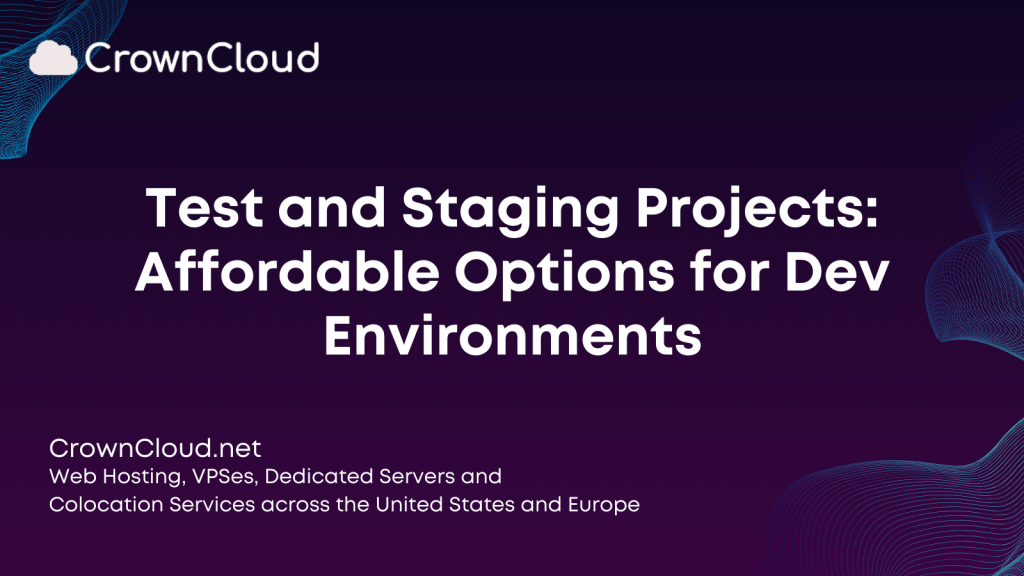What Are Test and Staging Projects?
Test and staging environments are separate setups where developers and teams can safely try out apps, updates, and integrations before going live. These environments copy the production setup but are meant for testing, debugging, and validating changes, so you avoid breaking real services.
Using budget-friendly VPS plans, you can create a fully working development or staging environment without spending much. This is perfect for startups, small teams, or individual developers who want reliable test setups at a low cost.

Key Features of Test and Staging Environments
- Separation from Production – Keep experiments, test data, and configurations isolated to avoid affecting live users.
- Scalable Resources – Start small and increase CPU, RAM, or storage as your project grows.
- Multiple Environments – Create separate setups for development, QA, staging, and pre-production.
- Git Integration – Sync staging with your Git repositories for easy testing of new branches or commits.
- Automated Deployment – Set up CI/CD pipelines to automatically deploy code for testing before release.
- Snapshots & Rollbacks – Take snapshots to revert changes quickly if something goes wrong.
- Monitoring Tools – Track CPU, memory, and storage usage to simulate real-world conditions.
- Secure Access – Control who can access the environment via SSH, VPN, or role-based permissions.
Why Use Affordable Plans for Dev/Staging
- Cost-Effective – Launch a full testing environment on budget VPS or cloud servers, often starting at $5 to $10/month.
- Safer Testing – Experiment with updates or features without risking live systems.
- Flexible Setup – Pick the OS, software, and resources that match your project.
- Quick Cloning – Spin up multiple environments for different branches, teams, or experiments in minutes.
- Container-Friendly – Use Docker or containerized apps for consistency and easy portability.
- Lightweight & Efficient – Run multiple test projects simultaneously without heavy resource use.
System Requirements for Test/Stage Environments
- Operating System: Debian 12, Ubuntu 20.04/22.04, or Rocky Linux 9/10, Alamaliunx 9/10
- Containers/VMs: Docker, Docker Compose, or virtual machines
- Memory: Minimum 2GB RAM (4GB+ recommended)
- Storage: 10GB or more (depends on application size)
- CPU: 64-bit architecture, 1–2 cores minimum
- Web Server: Nginx, Apache
- SSL/HTTPS: Required for secure testing
- Domain/Subdomain: Optional, for testing live-like setups
Installation on Linux OS :
You can find installation instructions in the CrownCloud Wiki Guides, and it follows:
Docker Compose:
Purchase a KVM VPS – Choose a KVM VPS plan from us that suits your requirements.
KVM SSD Plans – https://crowncloud.net/ssd_kvm.php
NVMe SSD KVM VPS Plans – https://crowncloud.net/nvme_kvm.php
AMD Ryzen SSD KVM VPS – https://crowncloud.net/ssd_amd_ryzen_kvm.php
Intel i9 12900K SSD KVM VPS Plans – https://crowncloud.net/ssd_intel_i9_kvm.php